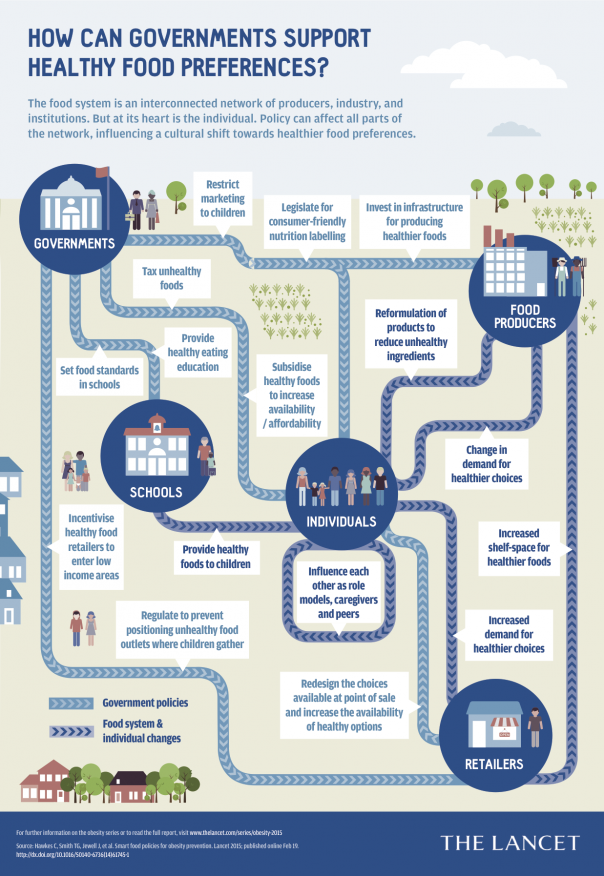
Today’s food environments exploit people’s biological, psychological, social and economic vulnerabilities, making it easier for them to eat unhealthy food, according to medical researchers worldwide looking into obesity and how it can most effectively be tackled.
They say that this situation reinforces preferences and demands for foods of poor nutritional quality, furthering the unhealthy food environments.
Their prescription to solve these issues: “Regulatory actions from governments, and increased efforts from industry and civil society will be necessary to break these vicious cycles.”
They believe that despite isolated areas of improvement, to date, no country has reversed its obesity epidemic and there is, at best, only patchy progress on obesity prevention.
In 2010, elevated body mass index (BMI) accounted for about 2.8 million deaths each year, and diet-related risk factors – low fruit consumption and high sodium intake, for example – and physical inactivity accounted for 10% of global disability-adjusted life-years.
The globalisation of food systems that promote overconsumption of energy-dense, nutrient-poor food and beverages is identified as the major driver of this obesity pandemic.
An important global step was made in 2013 with the adoption of the World Health Organization’s Global Action Plan for the Prevention and Control of Non-communicable Diseases 2013–20, which includes obesity targets for adults and adolescents.
However, researchers say there is reason to feel optimistic about the future of obesity prevention because many countries have increased their actions to address unhealthy diets.
There is consensus of the core policy actions to promote healthy diets, including nutrition labelling, food taxes or targeted subsidies, restrictions on food advertising, incentivisation of healthy retail environments and encouraging changes in diet behaviour.
Other policies have focused on schools. For example, the Mexican Government has implemented food regulations aimed at improving the availability and accessibility of healthy food and beverages in schools.
These regulations include nutritional criteria and specific recommendations for a healthy midday snack.
Governments are taking several steps to coordinate action throughout the food system. South Australia, for instance, has implemented a health-in-all-policies approach, which emphasises that government objectives for a healthy population are best achieved when all sectors include health and well-being as a key component of policy development.
To encourage changes in the food supply that will promote health, many governments have developed initiatives that engage with the food industry, such as the US White House Task Force on Childhood Obesity, created in conjunction with US First Lady Michelle Obama’s ‘Let’s Move’ initiative.
Since launching in 2011, the UK’s Public Health Responsibility Deal has motivated a series of pledges and actions by catering operators and food companies.
The researchers said: “We have proposed that the debate over individual choice vs environmental influence be reframed so as to acknowledge the interaction between the two.
“We frame obesity as a problem driven largely by environmental effects that undermine the self-regulatory capacity people have to make responsible decisions about personal diet and physical activity.”
The full paper can be downloaded from The Lancet website: www.thelancet.com